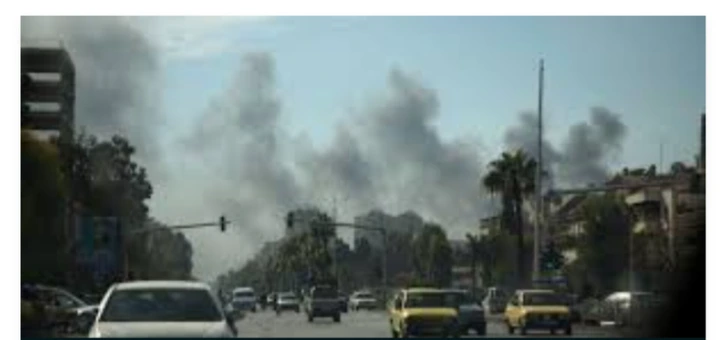Fire Across the Frontier: Israel Strikes Syria Amid Power Shift and Regional Turmoil

Israel has launched a series of airstrikes across Syria, targeting military installations, including a research center linked to chemical weapons production. The UK-based Syrian Observatory for Human Rights (SOHR) reported over 100 strikes, focusing on facilities believed to be used for missile development by Iranian scientists. Israeli officials stated that the operations aim to prevent weapons from reaching extremist groups following the collapse of the Assad regime.
The UN Security Council held an emergency session to address Syria's escalating instability after the fall of President Bashar al-Assad’s government. The Organisation for the Prohibition of Chemical Weapons (OPCW) urged Syrian authorities to secure suspected chemical weapon stockpiles amid concerns about incomplete declarations. Syria’s chemical weapons program has been under international scrutiny since a deadly sarin gas attack in Damascus in 2013.
In a separate development, Israeli forces crossed into the demilitarized buffer zone in the Golan Heights, citing urgent security concerns after the Syrian government’s collapse. Prime Minister Benjamin Netanyahu described the move as temporary and defensive. Israel seized the Golan Heights from Syria during the 1967 Six-Day War and later annexed the territory in 1981, though most countries do not recognize the annexation.
Meanwhile, the Islamist opposition group Hayat Tahrir al-Sham (HTS) captured the Syrian capital, Damascus, declaring the country "free" after toppling Assad’s regime. The group announced plans to expose former regime officials involved in war crimes, offering rewards for information. Assad’s fall ended decades of his family’s rule, weakened by Russia and Hezbollah’s reduced support due to conflicts in Ukraine and Lebanon.
Israel expressed a willingness to establish peaceful relations with any emerging authorities in Syria but vowed to defend its borders if necessary. The strategic significance of the Golan Heights remains critical, especially given HTS leader Abu Mohammed al-Jawlani’s familial ties to the region. Israeli strikes have intensified amid broader regional conflicts, including the ongoing Israel-Gaza war and skirmishes with Hezbollah in Lebanon.



0 Comments